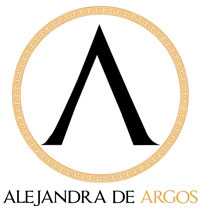Spinoza held that the world is the expression of a divine substance that determines the laws of physics and human actions. I could not agree more. If I had to take one book with me to a desert island, it would be Spinoza's “Ethics”. When I first read the work as a young man, I believed in a universe enlightened by divine wisdom.

Spinoza held that the world is the expression of a divine substance that determines the laws of physics and human actions.
I could not agree more. If I had to take one book with me to a desert island, it would be Spinoza's “Ethics”. When I first read the work as a young man, I believed in a universe enlightened by divine wisdom. The philosopher’s words were like a balm to heal the wound caused by reality - that God did not just create what our eyes perceive but also that everything in existence is imbued with his essence. And not in a figurative or idealistic sense but a material one because, as he concludes, the attributes of The Almighty manifest themselves in the world and all that we see, think or touch is an extention of divinity. There is nothing outside of God, not even evil.
Spinoza did not have an easy life. He was born in Amsterdam in 1632 into a Jewish family that had probably fled the Inquisition in Spain. At a young age, he was excommunicated as a heretic and, despite the pleas of his relatives and friends, he never recanted. He was slandered and branded a heathen but never once uttered a word of reproach about this to his fellow men. He lived to be just 44 years old and died alone after a life of earning his living as a lens polisher. His final years were spent in The Hague writing his “Ethics, Demonstrated in Geometrical Order”.
That title may well surprise us today but Spinoza believed that geometry was a science whose postulates could be demonstrated with certainty. He wanted the axioms, propositions, corollaries and scholia of his work to have the same logical consistency as lines and angles projected onto a plane. For him, geometry was the most perfect embodiment of rationality.
It was Spinoza who affirmed that "the desire of Man is to persevere in his own being", since he understood that desire is the wish for self-knowledge and, beyond this, human nature is an expression of the infinite goodness of God, who is omniscient and eternal.
There are few other references to Man in “Ethics”, throughout which humanity is curiously absent. Spinoza reflects on substance, attributes, inclinations and God, but says almost nothing about the human being. It took me some time to understand that the concept of Man is a simple extension of the substance that, according to proposition VIII, is "necessarily infinite". What is “real” is a unique substance that permeates everything that exists and in which all things participate. But what is “real” is plural because it is endowed with the infinite attributes and inclinations of substance. As our understanding of it is limited, we are unable to understand the infinity of the Universe.
We should not make the mistake of confusing substance with physical matter in Spinoza's philosophy because the existing world is nothing more than the unfolding of God in history, a notion that does not fail to offer a misleading temporal perspective because everything begins and ends in a Supreme Being who comprises the beginning and the end of all things. “Whatsoever is, is in God, and without God nothing can be, or be conceived”, he says in proposition XV.
What this means is that we carry out the will of God even when we do evil. Sin is still an insignificant deviation in the divine design and, in any case, it is an action produced by ignorance of the benevolent essence of the Almighty. The good and the bad, the noble and the base, the generous and the selfish are subsumed in the evolution of a substance that, essentially, denies free will.
Spinoza did not believe in the moral norms dictated by rabbis and Lutheran pastors. He thought, as did Kant, in every man’s autonomy to act according to his conscience. This implied a radical defence of freedom of thought in a Europe that had just suffered a bitter and bloody religious war. But by the same token, he maintained, in somewhat of a contradiction, that freedom consists in our adhering to the laws that reason dictates and that lead to virtue.

Excomulgado Spinoza. Samuel Hirszenberg,1907
If Descartes distinguished between the spirit and the body, which forms part of the res extensa, Spinoza breaks that dualism by affirming that Man and God are the same thing or, more precisely, that we are imperfect extensions of a superior reality. The soul, however, is immortal and imperishable to the extent that it emanates from the divine substance, which brings it very close to pantheism, as scholars of “Ethics” have underlined.
Beyond its coherence, the work of Spinoza, the most heterodox thinker of his time, has a beauty that captivates those who delve into it. He always lived according to his principles, renouncing fame and fortune and devoting his efforts to formulating a system that attempted to answer important questions about existence itself. His “Ethics” continues to present a challenge for all those still willing to take the risk of thinking.
(Translated from the Spanish by Shauna Devlin)
SPINOZA: A COMPLETE GUIDE TO LIFE
- Spinoza: All Is God and God Is All - - Alejandra de Argos -



